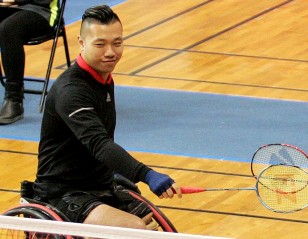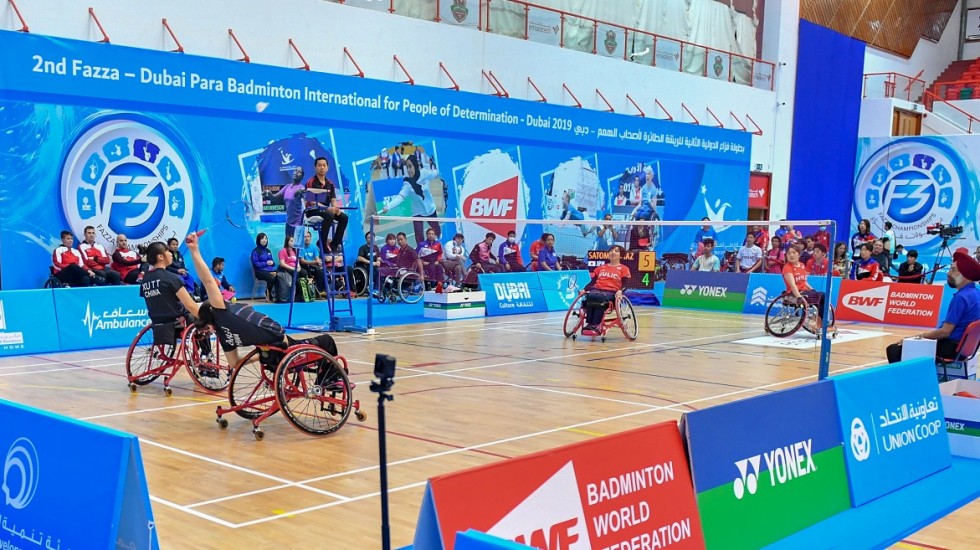
Athlete Wellbeing and Tokyo 2020 Top Priority for Commission
The BWF Para Badminton Commission met in Dubai on 5 and 6 April to address issues of ensuring athlete wellbeing as well as managing tournament organising costs.
Currently, there is only one level of competition for all athletes, but given the rise in the number of entries in all classes, there is the suggestion of having different levels of tournaments to allow the BWF to separate the developing athletes from the elite players.
This could also mean cutting down on the number of days and number of matches being played, thereby reducing the possibility of fatigue and injury.
“At tournaments now, some athletes are playing up to five matches a day because they play in several categories and combined class doubles. We need to protect the athletes so they can perform at their best throughout their career,” said BWF Vice President – Para-Badminton, Paul Kurzo.
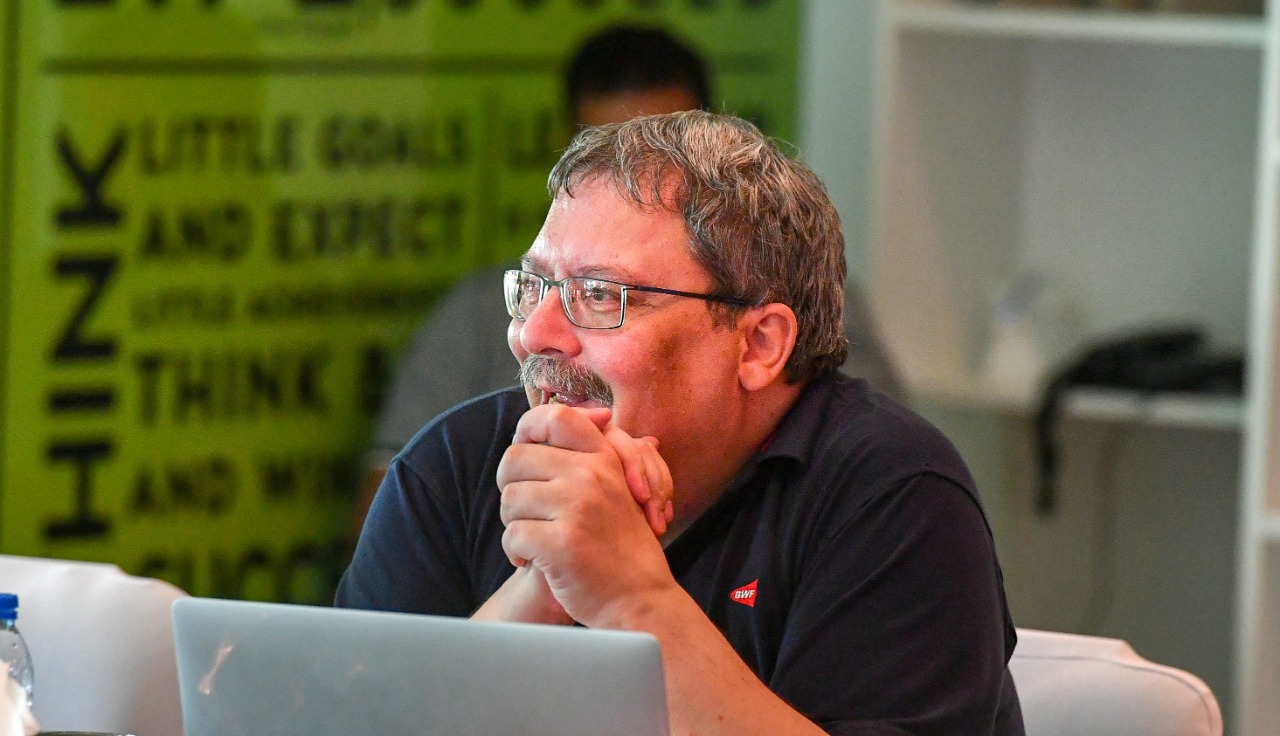
The main focus for the commission remains the Tokyo 2020 Paralympics, which will feature Para badminton for the first time.
The official Paralympic Games Test Event – the Japan Para-Badminton International from 11-17 November – will give BWF an opportunity to test the court and playing conditions of the venue to ensure they are in accordance with BWF regulations and match requirements.
BWF Technical Delegate Guenter Kluetzke said the number of events to be played at the test event was still to be confirmed.
“We are working with the host to finalise this, although we’re probably looking at 14 with the possibility of two more to include short stature for women’s singles and mixed doubles,” he explained.
BWF is also yet to received a confirmed number of technical officials that will be assigned to Tokyo 2020. “This is a decision which we hope to confirm soon with the IPC,” said Kluetzke, who will be the technical delegate at the Paralympics.
BWF’s plan is to have four referees and 24 umpires and some of these officials have been identified and will be notified as soon as confirmation is received.
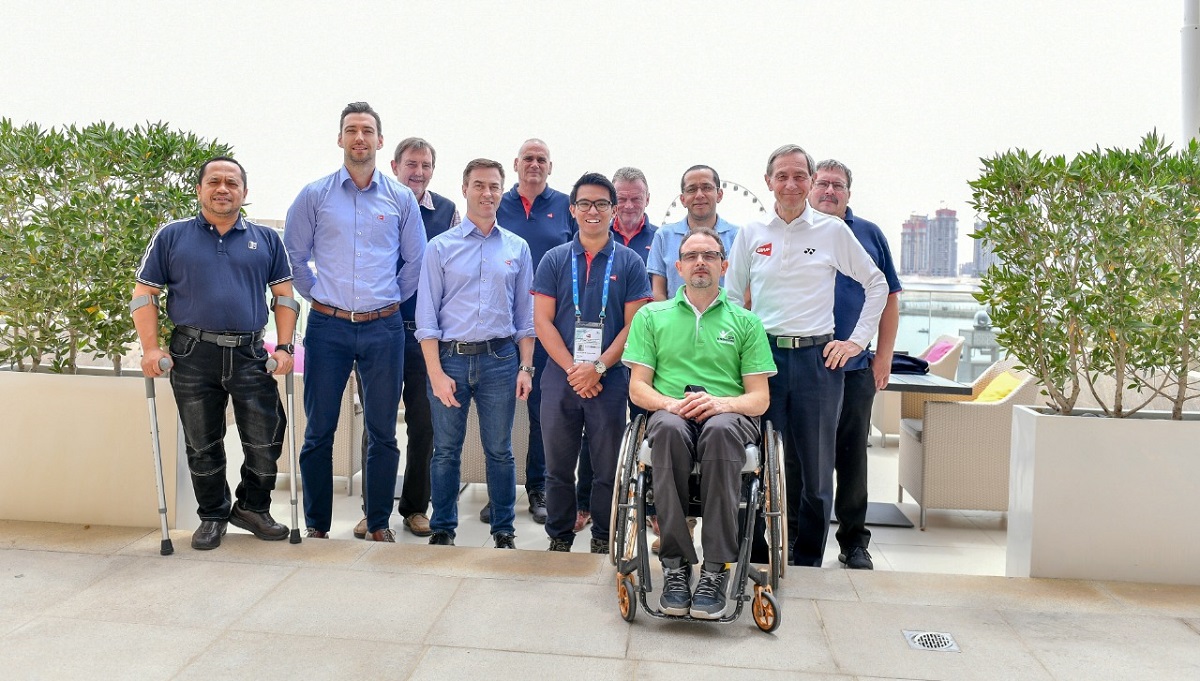
While the officials and administrators make these plans, the athletes too have a say in the matter.
The BWF Para Badminton Athlete Commission chairperson Richard Perot explained the restructuring of tournaments is probably one of the best ways in which to manage not only athletes’ health and wellbeing, but also the cost of running a tournament anywhere.
“I think we should take the best of the able-bodied event structure and incorporate it into the Para badminton tournaments,” he said.
Perot is in agreement with the plan to divide the development and beginner levels from the elite tier, where no new on-site classification will be needed.
The athlete representatives also plan to set up a working group to aid the classification process as well as evaluate the type of approved prosthetics and wheelchairs. This is expected to alleviate the pressure on the classifier alone in determining an athlete’s class for competition.
“If we, as former athletes and maybe even former coaches are involved, we believe we can assist the classifiers as well as assure the other athletes of fairness in assessment,” said Perot.
Olympic and Paralympic News

Para World Champs: Golden Firsts for Marlina, Kozyna 7 November 2022

Para World Champs: Peru’s Pilar of Strength 7 November 2022

Para World Champs: Ukraine’s Kozyna Creates History 6 November 2022

Para World Champs: Indonesia Stamp Authority 6 November 2022

Para World Champs: Hellman/Wandschneider Script Magic in Tokyo 5 November 2022

Para World Champs: Poveda, Coombs Advance 5 November 2022

Para World Champs: Swiss, Japanese Ladies into Last Four 4 November 2022

Para World Champs: Age No Barrier 4 November 2022

Para World Champs: Satomi Dominant as Kajiwara/Murayama Crash Out 4 November 2022

Para World Champs: Baby Not Medals on New Mum Oktila’s Mind 3 November 2022

Para World Champs: Mazur Leads French Charge 3 November 2022

Para World Champs: Two-time Champion McVeigh Hangs up his Racket 2 November 2022

Para World Champs: Top Seeds off to Flier 2 November 2022

Para World Champs: Debutants Revel in Representing their Nations 1 November 2022

Para World Champs: Stars Return to Tokyo 31 October 2022
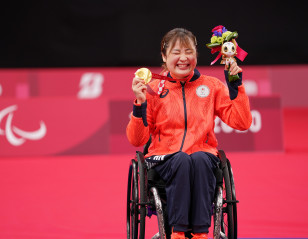
2021 in Review: History-Making Para Shuttlers 31 December 2021
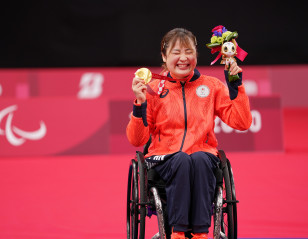
Paris 2024 Paralympic Programme Announced 20 November 2021
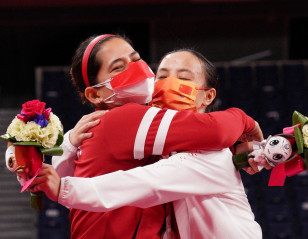
Paralympics Review – Showcasing the Extraordinary 17 September 2021
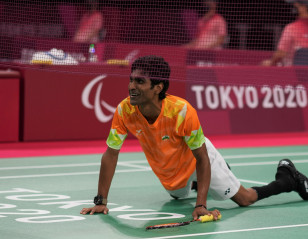
Stars of the Paralympics 16 September 2021
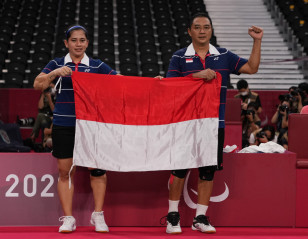
Tokyo 2020: Para Badminton in Stats 12 September 2021
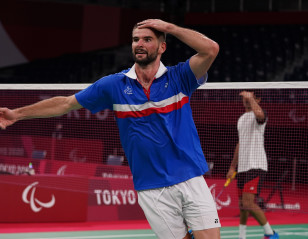
Review: Best Matches from Tokyo 2020 Paralympics 11 September 2021
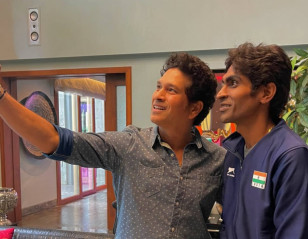
One Week, Two Dreams Come True 10 September 2021
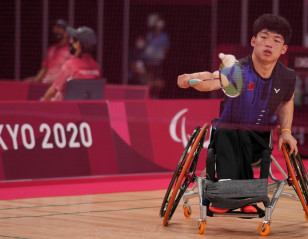
Para Badminton at Tokyo 2020 in Quotes | Part II 7 September 2021
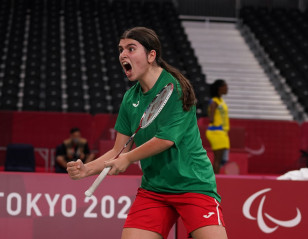
Para Badminton at Tokyo 2020 in Quotes | Part I 6 September 2021
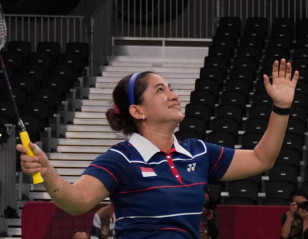
Double Delight for Satomi, Oktila, Qu Zimo 5 September 2021
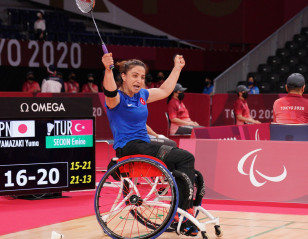
Father’s Memory Drives Seckin in Upset of Yamazaki 3 September 2021
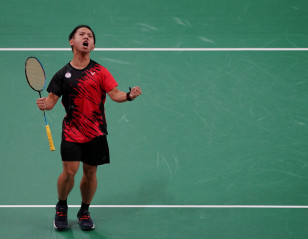
SH6 Group A on Edge 2 September 2021
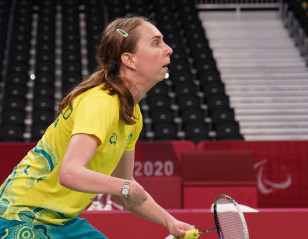
Through Sport, Study and Work, Dransfield Pushes for Change 2 September 2021
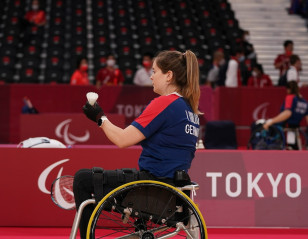
Para Badminton Enjoys Smooth Take-Off 1 September 2021
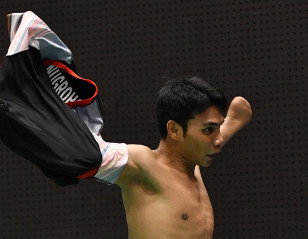
Milestones in Para Badminton’s Journey to Paralympics 1 September 2021
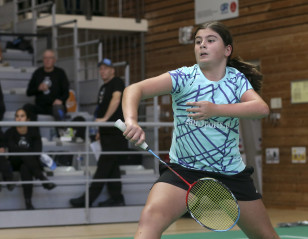
Tokyo 2020: Para Badminton In Numbers 1 September 2021
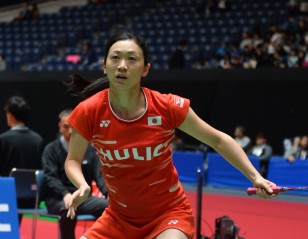
Three Shots at Gold 1 September 2021
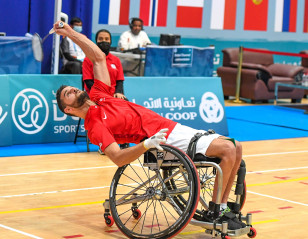
Tokyo Diary: ‘Sport Gave Me Courage’ 31 August 2021
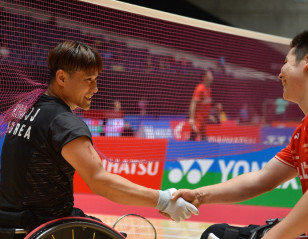
Battle of Youth Versus Experience 31 August 2021
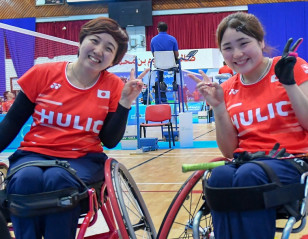
Spotlight on Satomi, Liu Yu Tong 30 August 2021
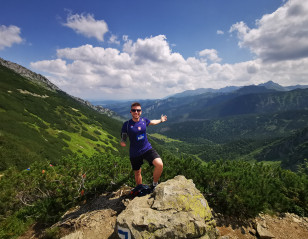
Tokyo Diary: Mroz Confident After High-Altitude Stint 30 August 2021
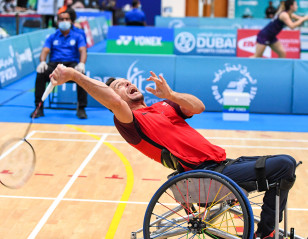
Airbus Gives Toupe a Fast Ride for Tokyo 2020 29 August 2021
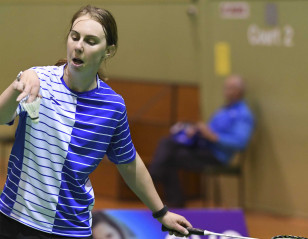
For Self, State and Nation 29 August 2021
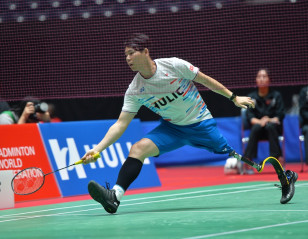
Ready to Stand and Deliver 28 August 2021

A Tattoo, A Reminder 28 August 2021
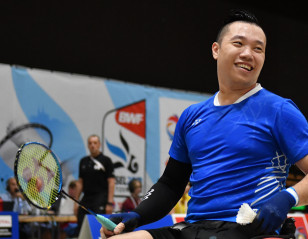
Chan’s Dream Coming True 12 Years On 28 August 2021
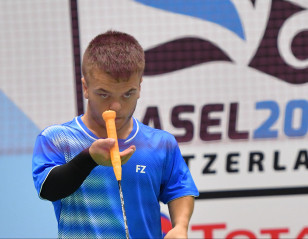
Alongside Old Friend, Shephard Primed for Medal Attack 27 August 2021
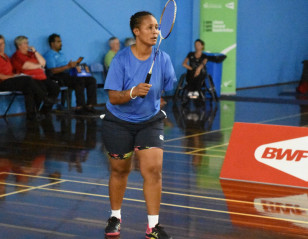
Para Shuttler Leva Targets Javelin Medal in Tokyo 27 August 2021
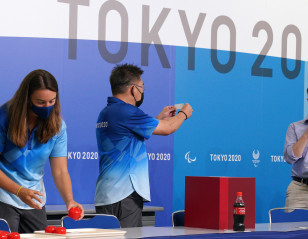
Paralympics Draw: Exciting Group Clashes in Store 26 August 2021
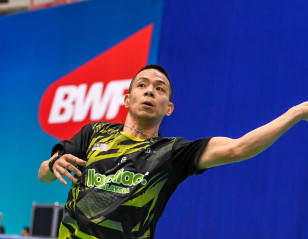
This is Cheah Liek Hou 26 August 2021
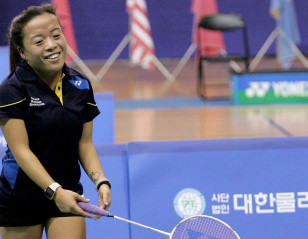
Choong ‘Losing Sleep Over Paralympic Excitement’ 25 August 2021
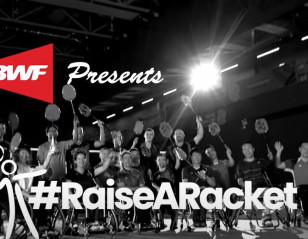
#RaiseARacket for Your Heroes These Tokyo 2020 Paralympics 24 August 2021
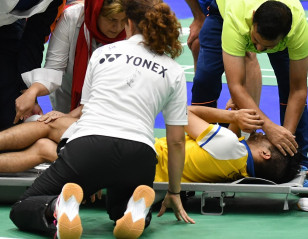
Tarun Undeterred by Injury Setbacks 23 August 2021
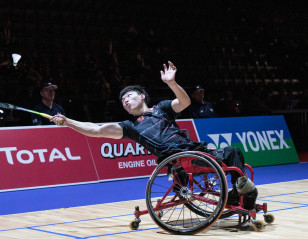
Qu: I Want to Hear My National Anthem 20 August 2021

Qualifiers for Tokyo 2020 Paralympics Confirmed 25 July 2021
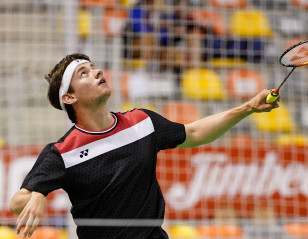
Settled Bethell All Set to Test Mettle 1 June 2021
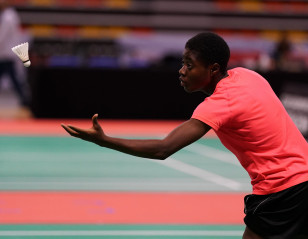
‘Bello Will Always be My Biggest Inspiration’ 29 May 2021
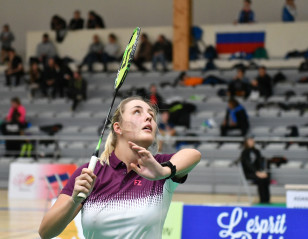
Spanish Reunion Ignites Rosengren 11 May 2021
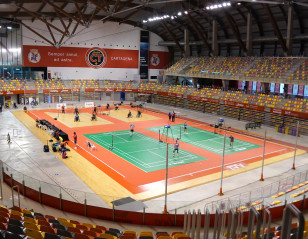
Spanish Para Badminton International: Stars Set to Sparkle 10 May 2021
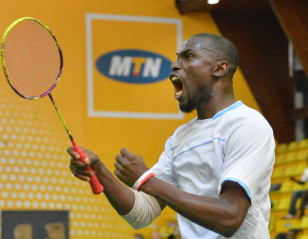
Badminton Community Mourns Passing of Bello Rafiu Oyebanji 23 April 2021
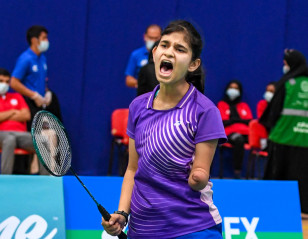
Resolute Kohli on the March Again 22 April 2021
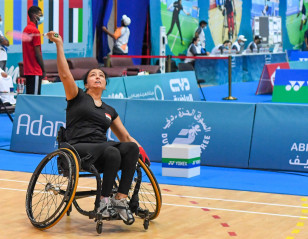
Ellatif, a Woman on a Mission 15 April 2021
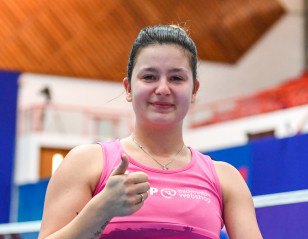
Dubai Para Badminton International: Positive Vibes All Around 11 April 2021
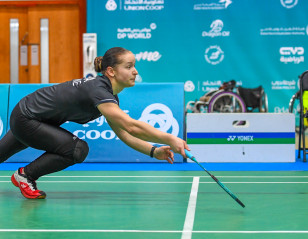
Dubai Para Badminton International: Kozyna Surprises World Champion 5 April 2021
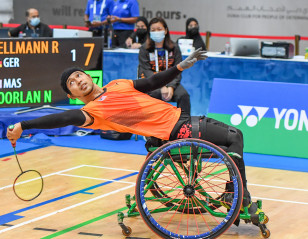
Dubai Para Badminton International: Lockdown Training Pays Off 4 April 2021
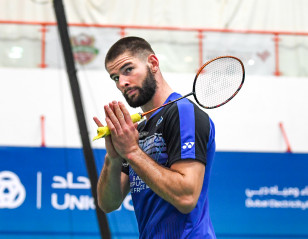
Dubai Para Badminton International: France Threatens India’s Domination 3 April 2021
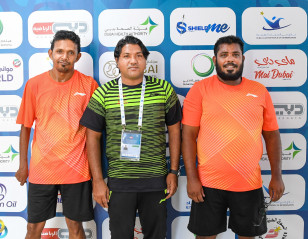
Talent From a Thousand Islands 3 April 2021
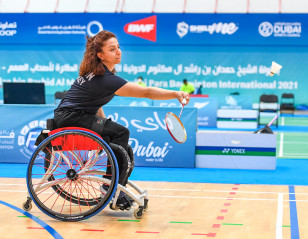
Dubai Para Badminton International: All-Points Battle 2 April 2021
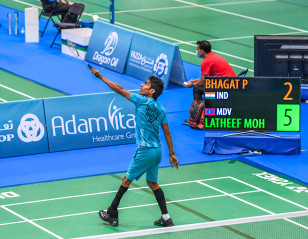
Dubai Para Badminton International: Standing Tall 1 April 2021
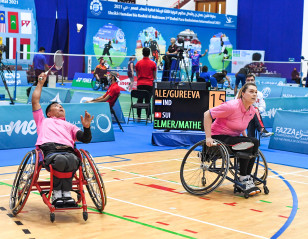
Dubai Para Badminton International: Communication Is Key in Doubles 31 March 2021
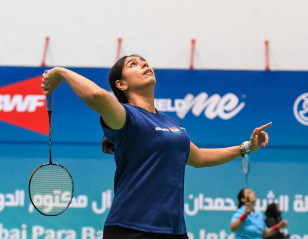
Dubai Para Badminton International: Leading Ladies Set the Tone 30 March 2021
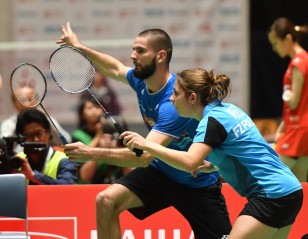
Gold is Goal for Mazur, Noel 27 March 2021
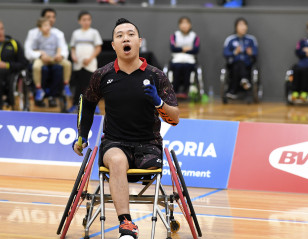
Chan: Time to Show the World What We Can Do 23 February 2021
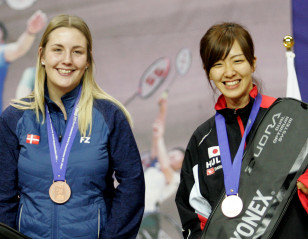
Para Badminton Community Rejoices, Fire Reignited 13 February 2021
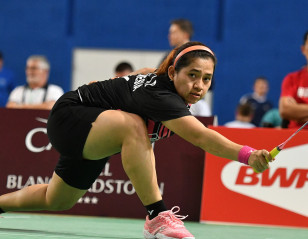
Para Badminton Tournament Calendar for 2021 2 February 2021
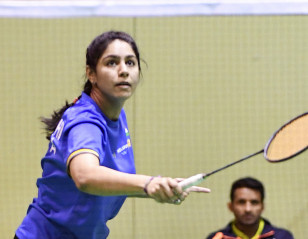
Another Feather in Joshi’s 2020 Cap 24 November 2020
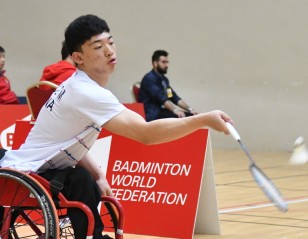
BWF Considering Options for Para Badminton Restart 29 October 2020
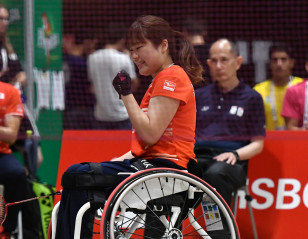
‘I’d Be Stuck at Home If Not for Para Badminton’ 24 October 2020
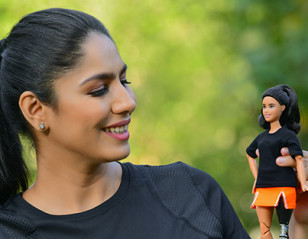
A Role Model, Time and Again 22 October 2020
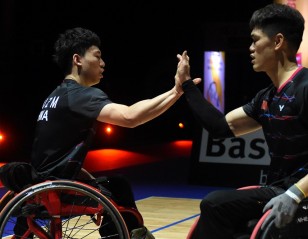
On This Day: Badminton Becomes a Paralympic Sport 7 October 2020
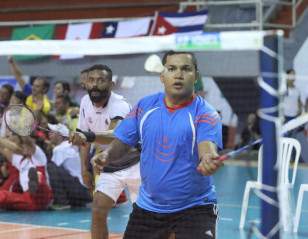
Brian Kliwon: Umpire, athlete and future doctor 6 October 2020
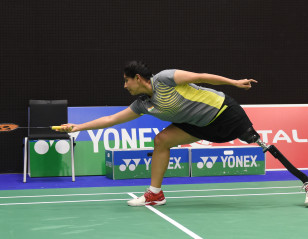
Manasi Joshi: Shining a Light on Gender and Disability 24 September 2020
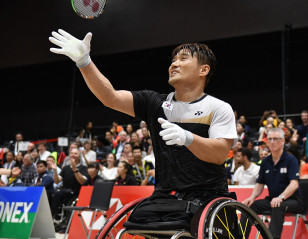
Tokyo 2020: Paralympic Stars to Watch 1 September 2020
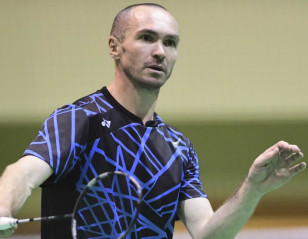
Robinson, the Kiwi Flying the World Solo 31 August 2020
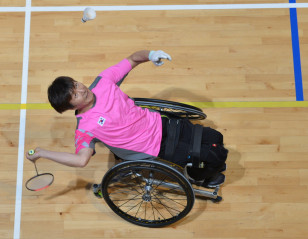
Tokyo 2020 – A Long, Extended Wait for A Dream 25 August 2020
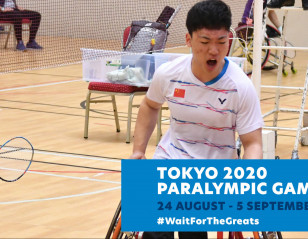
Countdown to Tokyo Paralympics Begins 24 August 2020

Para Badminton Tournaments Suspended 13 August 2020
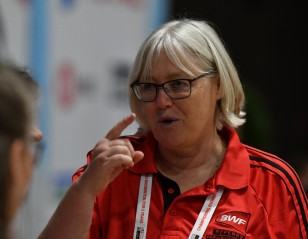
Barbara Fryer the High-Flyer Makes It a First 30 July 2020
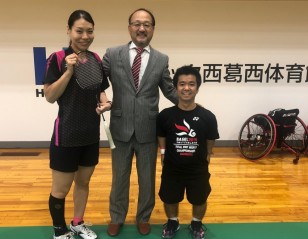
Team Japan is Back on Court 11 July 2020
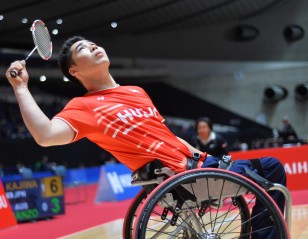
Extra Time a Blessing For Suzuki and Kajiwara 30 June 2020
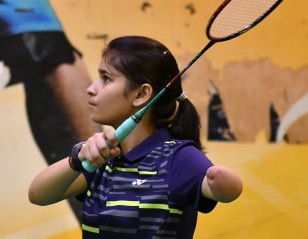
Palak Kohli Makes the Most of the Great Outdoors 25 June 2020
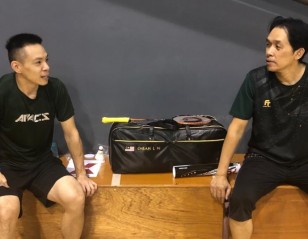
Rashid Sidek Aids Cheah’s Quest for Paralympic Glory 18 June 2020
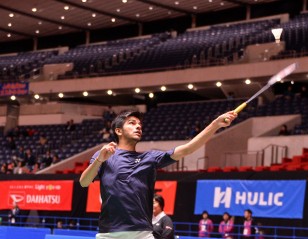
Badminton Triumphs Trump Cricket Dreams for Tarun Dhillon 2 June 2020
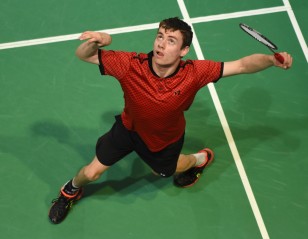
Getting to Know … Daniel Bethell 20 May 2020
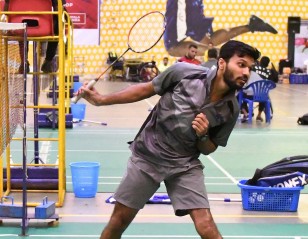
Sukant Kadam: How I Started Playing Badminton 10 May 2020
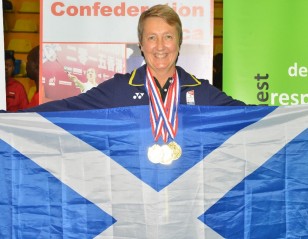
Taliban Attack Survivor Won’t Slow Down Just Yet 8 May 2020
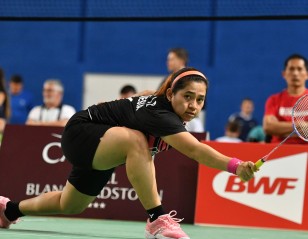
It’s All About Family and Country for Oktila 3 May 2020
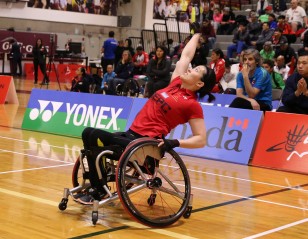
Lockdown Highs and Lows 23 April 2020
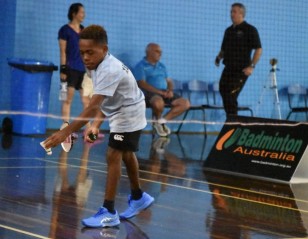
PNG Teen Ready to Fly High After ‘First Plane Trip’ 19 April 2020
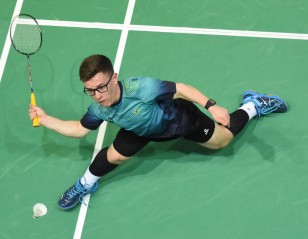
With Willpower and Great Dedication Comes Vitor Tavares 14 April 2020
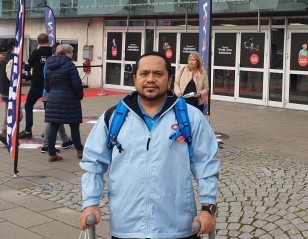
Behind the Scenes – BWF Classifier Dr Shamsul Azhar 5 April 2020
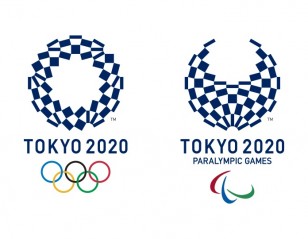
New Dates Announced for Tokyo 2020 Olympics and Paralympics 30 March 2020

Tokyo 2020 Paralympic Games Postponed 25 March 2020

Spanish Para Badminton International Cancelled 6 March 2020

Dubai Para Badminton International Postponed 5 March 2020
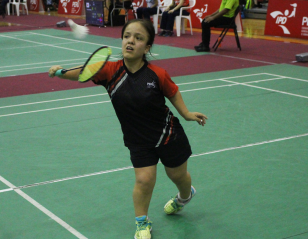
Poveda Can’t Stop Winning 24 February 2020

Venue Change for Brazil Para Badminton International 2020 9 February 2020
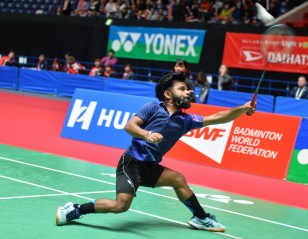
Bound for Big Things – Road to Tokyo: Krishna Nagar 8 February 2020
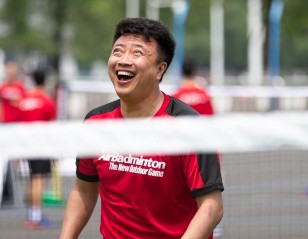
Dong Jiong: A Champion of Change (Part 4) 23 January 2020
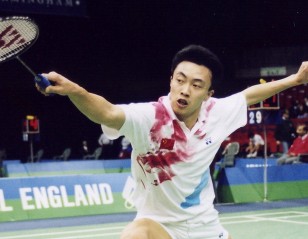
Dong Jiong: A Champion of Change (Part 3) 3 January 2020
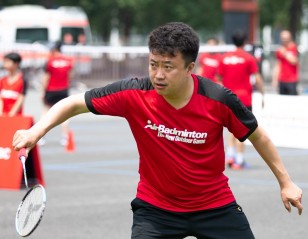
Dong Jiong: A Champion of Change (Part 2) 28 December 2019
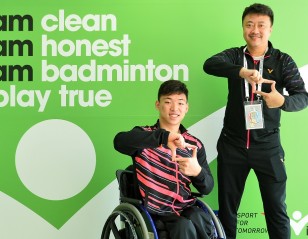
Dong Jiong: A Champion of Change (Part 1) 24 December 2019
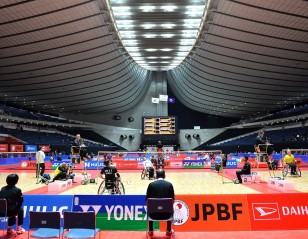
Historic Venue to Host Para Stars 27 November 2019
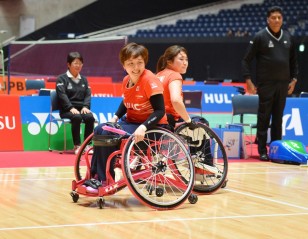
Double the Joy – Japan Para Badminton International 2019: Finals 18 November 2019
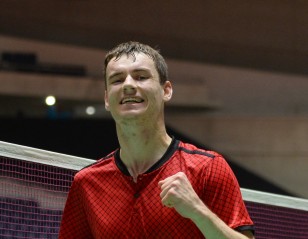
Bethell Dethrones Bhagat – Japan Para Badminton 2019: Finals 17 November 2019
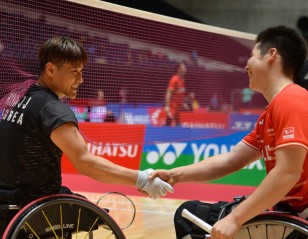
Kim Gives Kajiwara Four Years – Japan Para Badminton International 2019 16 November 2019

Stepping Up in Tokyo – Japan Para Badminton International 2019 15 November 2019

Fujihara Aims for Home Win – Japan Para Badminton International 2019 14 November 2019
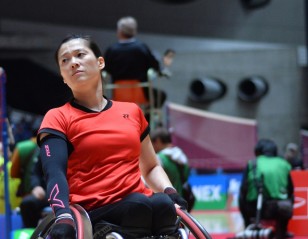
Big in Tokyo – Japan Para Badminton International: Day 1 13 November 2019

Blazing A Trail to Tokyo 2020 12 November 2019
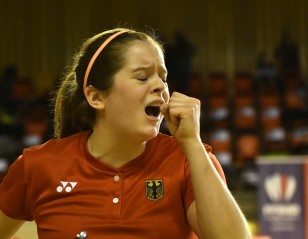
Might of Mind Over Matter – Road To Tokyo: Valeska Knoblauch 5 November 2019
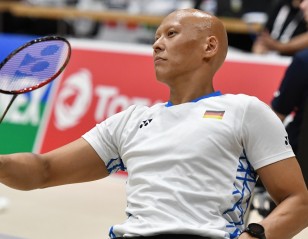
Excitement for Paralympic Games in Overdrive 1 November 2019

Record-Breaking Demand for Paralympics Tickets 21 October 2019
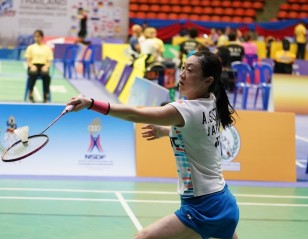
Suzuki, Mazur, Cheah Strike Twice – Thai Para-Badminton Int’l: Finals 22 September 2019
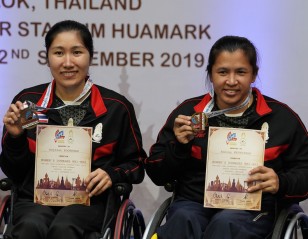
Double Gold for Wetwithan – Thai Para-Badminton Int’l: Finals 21 September 2019
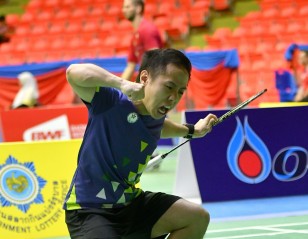
Chu Claims Champion Scalp – Thai Para-Badminton Int’l: Day 5 20 September 2019
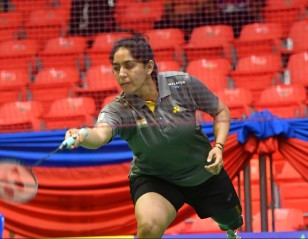
Focused on Change – Road To Tokyo: Manasi Joshi 19 September 2019
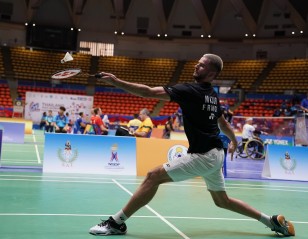
Para Stars Head to Thailand and China for Key Fortnight 17 September 2019
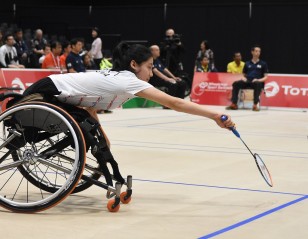
Teenage Threat on Two Wheels – Road To Tokyo: Liu Yutong 15 September 2019
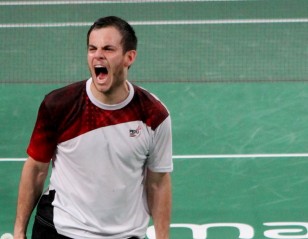
Historic Day for Peru and Guatemala – Parapan Am Games 2019 2 September 2019
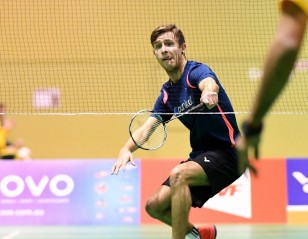
Born Fighter – Road To Tokyo: Tim Haller 6 August 2019
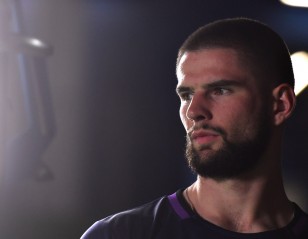
At the Height of His Career – Road To Tokyo: Lucas Mazur 16 July 2019
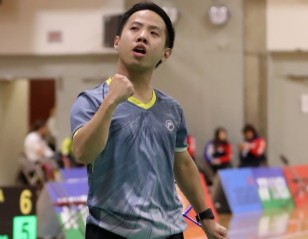
Close Battle for Top Spot 7 July 2019
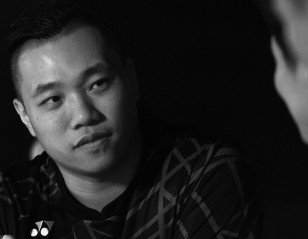
Badminton Saved My Life – Road To Tokyo: Chan Ho Yuen 5 July 2019
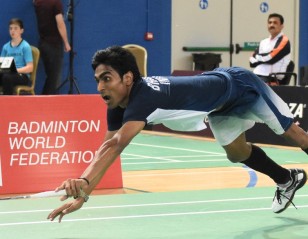
In-Form Bhagat Charges Ahead 4 July 2019
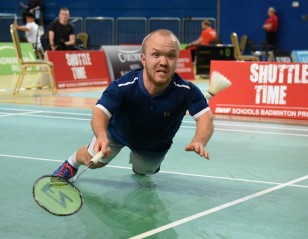
Coombs Breaks Drought – Irish Para-Badminton International 24 June 2019
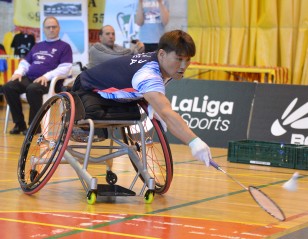
Kim Jungjun Ramps Up Training With Tokyo in Mind 12 June 2019
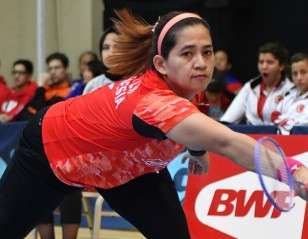
Oktila’s Sights Now On World Championships 13 May 2019
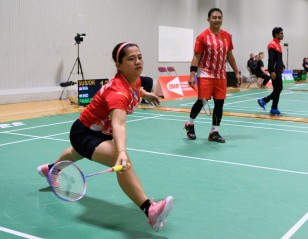
Dong Seop, Oktila Claim Treble – Canada Para-Badminton International 13 May 2019
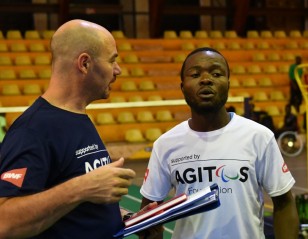
Agitos Workshop a Hit With Participants 1 May 2019
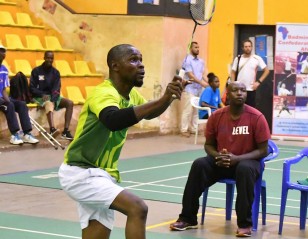
Bello Determined to Make History 1 May 2019
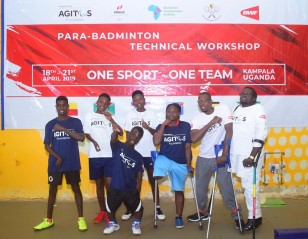
Sky’s the Limit for Para Badminton in Uganda 22 April 2019
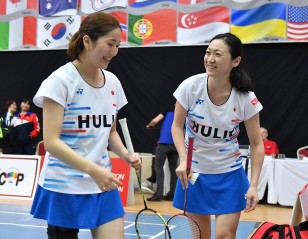
Team Japan’s Road to the Paralympics, and Beyond 12 April 2019
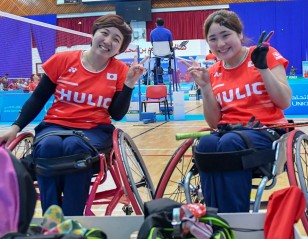
Super Mum – Road To Tokyo: Yuma Yamazaki 10 April 2019
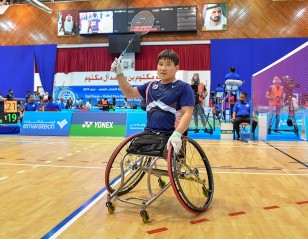
Asia Shares Out Wins – Dubai Para-Badminton Int’l 8 April 2019
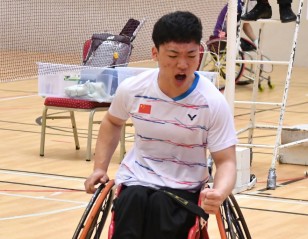
Qu Zimo Wins Triple Crown – ENESCUP 2019 1 April 2019
